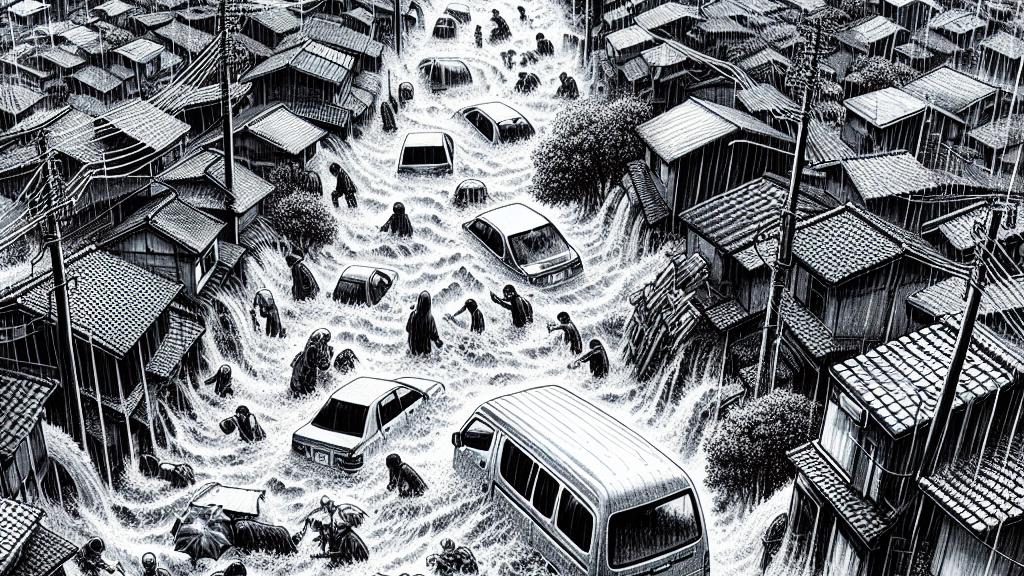Tragic Toll of Central Japan Floods: Climate Change and Natural Disasters
Overview
- A devastating wave of floods has swept through central Japan, claiming at least six lives and leaving many missing.
- These floods struck hard in regions still reeling from the Noto earthquake, compounding the tragedy for affected communities.
- Experts highlight the alarming link between climate change and the increasing frequency of such extreme weather events.

A Catastrophic Deluge Unfolds
In a shocking sequence of events, heavy rainfall began battering the Ishikawa region on September 21, leading to catastrophic flooding that few could have anticipated. Within just 72 hours, Wajima recorded more than 540mm of rain—an amount that breaks previous records, illustrating the severity of the situation. Local inhabitants shared harrowing stories of the flood's rapid onset; one resident described how, as she navigated the streets, floodwaters surged to half the height of her car in a matter of minutes! Tragically, this deluge has resulted in at least six confirmed fatalities, with families now face-to-face with the stark reality of loss. Their search for loved ones remains a frantic race against time as communities rally together to uncover survivors amidst the chaos.
Aftermath of the 2024 Noto Earthquake: A Community Struggles
The floods struck just as these communities were beginning to heal from the devastating Noto earthquake that occurred on January 1, 2024. This tremendous earthquake already caused 376 deaths, leaving many residents homeless and traumatized. Those who sought refuge in emergency housing found themselves once again in peril, as floodwaters invaded their temporary shelters. Eyewitness accounts reveal a feeling of hopelessness—one mother, displaced by the earthquake, shared her anguish at being forced to evacuate yet again. The overarching sense of vulnerability deepens, especially as landslides block critical access routes, leaving emergency teams scrambling for solutions. The military has been deployed to support rescue efforts, but the task remains daunting as thousands of people are urged to evacuate.
The Climate Change Imperative: A Critical Wake-Up Call
In the backdrop of these tragedies, scientists are vocal about the undeniable link between climate change and the increasing severity of weather events like these floods. They explain that a warmer atmosphere can hold significantly more moisture, making regions like Ishikawa prone to heavy rainfall that can lead to catastrophic flooding. It is not just the frequent storms, but the ferocity of these downpours that alarm experts. As communities face this new reality, they are challenged not only to respond to immediate crises but also to anticipate future threats. This stark reality serves as a clarion call for action: addressing climate change must now be seen as an urgent societal necessity. Failing to take significant measures against these climatic shifts threatens not just local ecosystems but also the very fabric of our communities. We must act decisively to protect our way of life.

Loading...